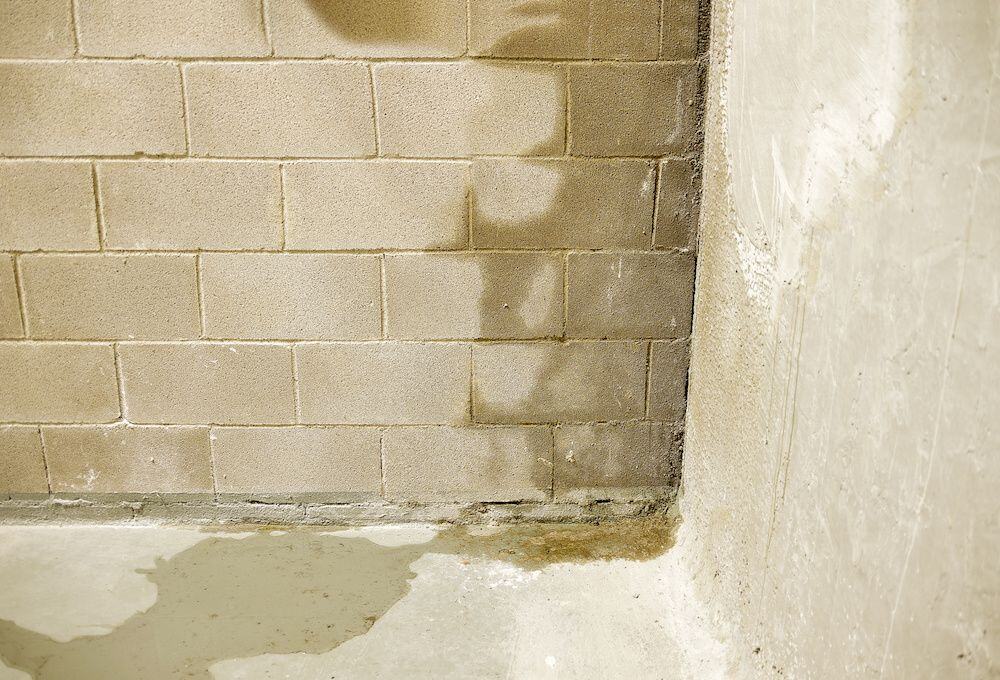
Regularly inspect these 9 areas around your home to monitor the condition of your foundation.
Your home’s foundation is its backbone. Without a stable, sound foundation, your home could face dangerous (and expensive!) structural damage.
Over time, various factors, like soil erosion or leaky gutters, can lead to foundation problems, which, if left unchecked, can result in significant damage and costly repairs.
Regularly inspecting specific areas around your home can help you catch issues early. Here are ten critical areas to keep an eye on to ensure your home remains structurally sound.
1. Basement Walls
Check for walls that appear to bow or lean. Bowed walls, especially in basements, often have horizontal cracks about halfway down or lower.
If you have a mortar and block foundation, stairstep cracks going up through the mortar lines are also a common sign of foundation movement.
2. Basement Moisture Levels
A wet or leaky basement is a major red flag. Moisture in your basement suggests that your foundation might be compromised. Move boxes and other items to thoroughly inspect for any signs of leaks or moisture buildup.

3. Interior and Exterior Walls
Cracks in both interior and exterior walls are clear indicators of potential foundation issues, particularly if the crack is in a stair-step pattern.
While cleaning or regularly maintaining your home, be on the lookout for any new cracks that might have appeared.
4. Crawl Space
Crawl spaces can be easy to overlook, but they play a crucial role in your home’s structural integrity. Check for any signs of moisture, mold, or soil erosion, which can lead to severe damage, like significant house settling.
5. Downspout Extensions
Ensure your downspouts are directing water away from your foundation. Damaged or improperly positioned downspouts can lead to water pooling near your home, which can cause foundation damage, basement flooding, mold, and more.
Inspect these during your regular garden maintenance and make the necessary repairs as soon as possible.

6. Door and Window Frames
When cleaning windows and wiping down doors, look for unexplained gaps between caulking and your windows or doors. These gaps can be more than just an inconvenience to repair; they may signal foundation settling or cracking.
These openings in your home are often the first place you may see stair step cracking in the exterior of your home. Don’t forget to check the biggest door in your home, your garage door!
Doors and windows that stick or don’t open and close properly can be another sign of foundation issues. Open and close all your doors and windows several times to see if they stick. If they do, monitor them over the next few weeks and consider a professional evaluation.
7. Uneven Floors
Uneven, sloping floors can indicate foundation damage, especially sloping floors over crawl spaces. If you feel the floor may be falling to one side, or notice that items roll across the floor without being pushed, your floors might be uneven.
During regular cleaning, use a level or tape measure when moving furniture to detect any sloping or uneven areas, which could be a sign of foundation problems.
Note: Uneven floors sitting directly on the ground may or may not be related to foundation issues.
8. Chimney
An unstable, cracked, or leaning chimney can indicate foundation settling. If you notice any instability, it’s important to get it checked by professionals to evaluate the extent of the damage and help determine the cause and potential repair options.

9. Garden Beds and House Perimeter
Inspect the perimeters of your house and garden beds for any sunken areas or sections where soil has eroded away.
A settling foundation can cause the ground to sink, leading to significant problems. Check even the hard-to-reach areas (under bushes and behind landscaping) to ensure there are no unnoticed sinking sections.
Should You Repair Your Foundation?
If you assess the areas in this article and find any problems, it's a good idea to get a foundation repair expert to assess the situation. Keep in mind, many foundation repair contractors provide free quotes.
Here at A-1 Concrete, we've been repairing and maintaining concrete for over 30 years, and some of our nationwide locations also specialize in foundation repair.
Find your location to see if foundation repair services are offered near you, or check out Concrete Academy for more educational resources on foundation repair.
Sarah Etler joined A-1 Concrete Leveling after receiving her Bachelor of Arts degree in English from Northern Kentucky University. As A-1's Content Marketing Manager, she works closely with industry experts to produce content that will best answer questions related to concrete repair and maintenance practices. Sarah loves living a life full of discovery and is excited every day to see what new things she can learn and share with those around her.
Topics: